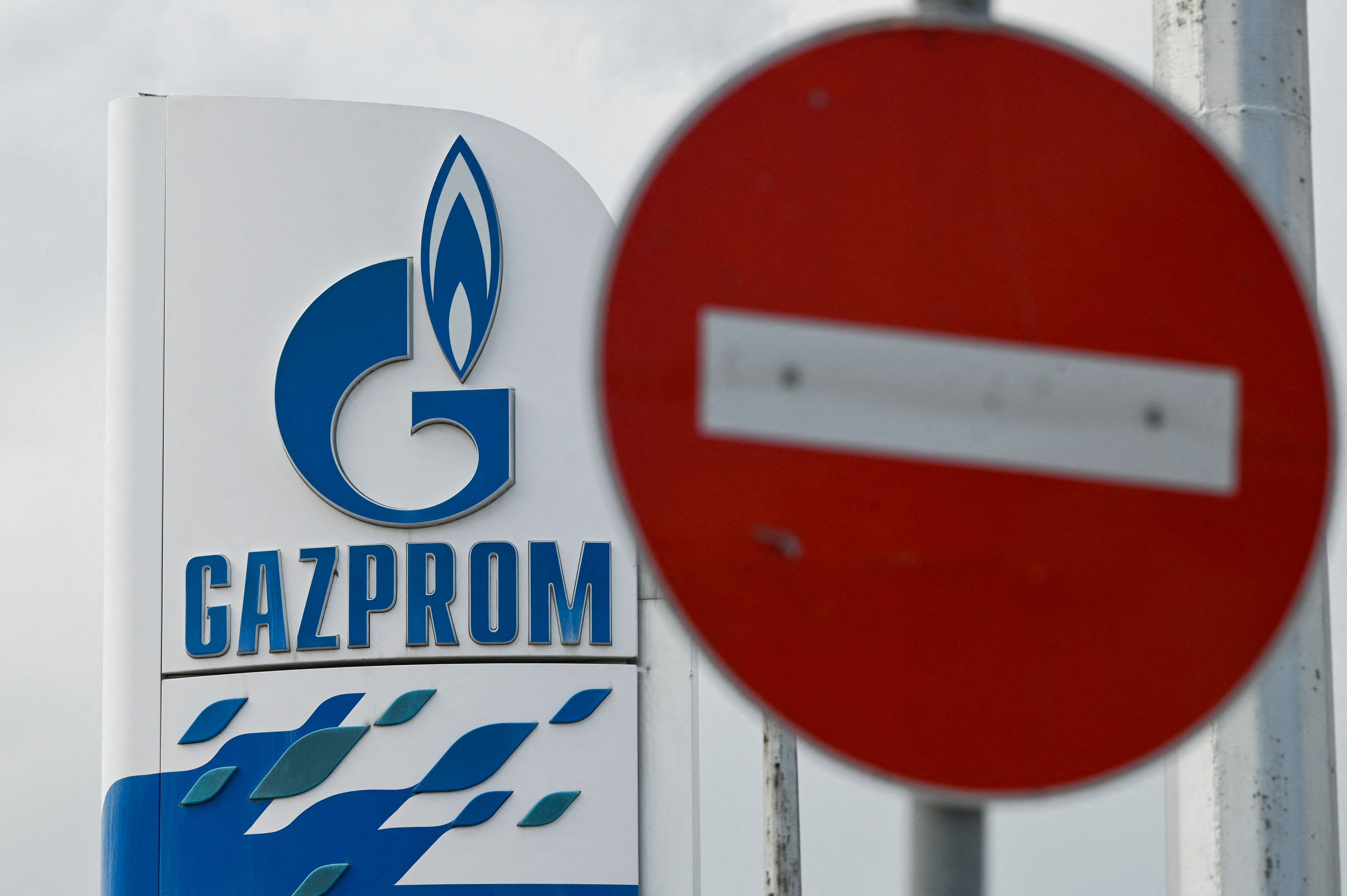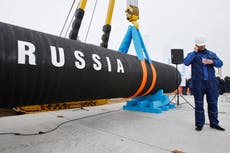‘Winter is coming’: Iran tempts Europe with promise of cheaper gas in exchange for nuclear deal
Experts caution it would be years before Iran’s gas could get to Europe

Tehran teased a Europe agonising over an impending winter without access to Russian energy with the prospect of Iranian gas exports should Iran’s nuclear deal with world powers be restored and sanctions lifted.
“Winter is coming,” Iran’s state-backed Mehr news agency has proclaimed, needling European nations over the prospect of cold temperatures, strained heating-gas supplies, and the ensuing political fallout.
Tehran’s offer came as fears continued to grow across Europe of a desperate winter ahead, as Moscow uses its control of gas supplies to exert pressure on capitals across the continent in retaliation for sanctions imposed after the invasion of Ukraine.
On Friday, energy giant Gazprom, Russia’s state-controlled gas company, announced it was closing its Nord Stream 1 pipeline indefinitely because of “oil leaks”. That move was criticised, but it also meant that gas prices surged again on Monday, with benchmark prices shooting up 31 per cent, prompting further predictions of energy rationing and blackouts across Europe this winter.
Though getting more Iranian gas into world markets could help to lower prices, experts have countered that Iran cannot meet Europe’s energy needs any time soon, regardless of sanctions.
Iran and the US, along with other world powers, are at stalemate on talks to restore a nuclear deal, which would remove restrictions on business with Iran and allow consumers to purchase its gas.
Iran has the world’s second-largest natural gas reserves after Russia. It shares a huge natural gas field with Qatar, which is increasingly one of the main suppliers to Britain. But Iran’s exports have suffered after Donald Trump, during his presidency, reneged on a 2015 nuclear deal forged by his predecessor and reimposed a harsh economic blockade on Iran, which responded by expanding its stockpiles of enriched uranium.
The US, Iran, and international intermediaries including the United Kingdom have for 18 months sought a formula to return to the deal, but have been hampered by apparent intransigence and mistrust in Washington and Tehran.
Iran now hopes that Vladimir Putin’s war against Ukraine, and the subsequent shutting off of gas deliveries that have heated homes and powered industry in Europe for decades, could entice the European Union and the UK to pressure Washington into accepting its terms.
“Considering the crisis in Ukraine and problems that Europe has in energy supplies, if the nuclear talks conclude and unilateral and illegal sanctions are lifted, the Islamic Republic of Iran can meet a larger part of Europe’s needs,” Iran’s foreign ministry spokesperson Nasser Kanaani told reporters in Tehran on Monday, according to the Islamic Republic News Agency.
Iran has begun increasingly to link the nuclear deal to the energy crisis. “It will be tough for the Europeans more than anyone else” if the nuclear deal fails, Mohammad Marandi, an adviser to Tehran’s nuclear negotiation team, told Al Jazeera on Sunday. “Winter is approaching, the weather is going to get cold, and they have a huge energy crisis and an economic crisis, and that could lead to major upheaval across the continent.”
He added, “Iran wants a deal, but the Europeans need a deal.”

Some experts have cautioned that Iran cannot meet Europe’s needs. Russia’s oil output and exports dwarf Iran’s, and it would take years of pipeline construction to connect Iran and Europe.
“Iran cannot export gas to Europe,” Esfandyar Batmanghelidj, founder and CEO of the business news website Bourse and Bazaar, wrote on Twitter.
Russia and Iran have become close security and commercial partners, and Iranian foreign minister Hossein Amir-Abdollahian recently made a last-minute trip to Moscow to meet with his Russian counterpart Sergei Lavrov. But it remains unclear whether the two nations are coordinating on energy strategy.
A return to the nuclear deal, called the Joint Comprehensive Plan of Action, has been slowed while wrangling takes place over Iranian conditions.
These are reported to include guarantees by the US not to reimpose sanctions should another administration take power in Washington, and a closing of nuclear inspectors’ investigations into Iran’s clandestine pre-2003 nuclear programme, which is likely to have included weapons research and tests banned by the nuclear non-proliferation treaty, to which Iran is a signatory.
Western leaders are scrambling to come up with schemes to lower energy costs, to protect families and businesses as well as shield against political instability caused by price inflation. Most of the interventions being considered involve price caps and loans, rather than seeking alternative supplies.
Join our commenting forum
Join thought-provoking conversations, follow other Independent readers and see their replies
Comments



Bookmark popover
Removed from bookmarks